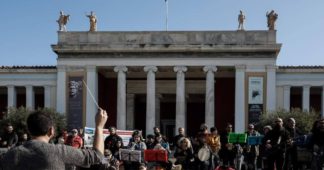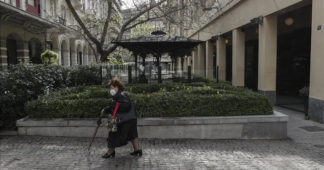Jan 27, 2022
New research by scholars across the world has started to shine a spotlight on the Nazi role in the looting of antiquities from Greece during World War II.
Take for example a new book, The Past in Shackles, published by Vassilios Petrakos, a scholar who is curator of antiquities and general secretary of the Archaeological Society of Athens. The book is a five-volume study on the looting of antiquities in Greece during WWII.
Symposia and lectures on antiquities looting by the Nazis have also been held in several cities in the past few years, including one by the College Art Association.

“Research has intensified greatly in many countries, including the United States, Germany, Italy, France, Poland and Greece,” Irene Bald Romano, a professor of anthropology at the University of Arizona, told The New York Times.
But of course, the research does not come without its challenges.
According to the NY Times, the passage of time has made it difficult for scholars today to quantify the scope of the looting of antiquities that occurred during World War II.
“A complete account of what was stolen does not exist and is no longer possible,” Petrakos, referring to the situation in Greece, said.

Petrakos said there were major digs in the Thessaly region of northern Greece. These were organised by Alfred Rosenberg, the Nazi theorist, who headed the Einsatzstab Reichsleiter Rosenberg, which plundered art, archives and libraries throughout Europe.
Heinrich Himmler, the head of the Gestapo and the SS, also started excavations in Greece under the auspices of his Ahnenerbe (Ancestral Heritage) organisation.
But experts say that these days Germany has been quite responsive to claims for repatriation of looted antiquities. It is not yet clear however, whether some may still reside in its museums because determining the full history of ancient artefacts can be so difficult.
Source: NY Times.
We remind our readers that publication of articles on our site does not mean that we agree with what is written. Our policy is to publish anything which we consider of interest, so as to assist our readers in forming their opinions. Sometimes we even publish articles with which we totally disagree, since we believe it is important for our readers to be informed on as wide a spectrum of views as possible.











